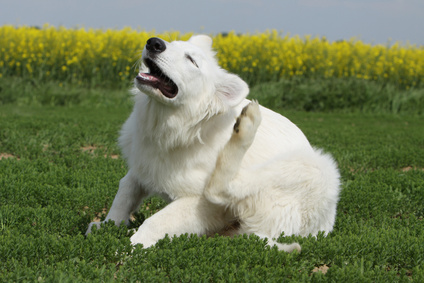Fleas
Fleas
Fleas
Fleas can be a problem even in the most spotless home or on the cleanest pet. Treat your pet - and your home - to keep fleas in check and stop your pet feeling jumpy.
Check for fleas
- Is your pet scratching?
- Can you see tiny dark specks in its fur, or small browny-black insects scurrying about?
- Do you have any unaccounted for insect bites yourself?
If you've answered 'yes' to any of these questions - it could mean fleas.
If you are in any doubt, a good way to check for fleas is to groom your pet using a fine-toothed comb held over a white surface such as a piece of kitchen towel. Any fleas or flea droppings will be deposited on the surface. Add a few drops of water and if the droppings turn reddish brown it is very likely your pet has fleas.
Flea treatment
It is essential to treat both your pet and your home, as fleas can survive in the environment without a host for many months. Clean bedding regularly and vacuum furniture, floors and skirting boards thoroughly to help destroy fleas at each stage of their life cycle. Throw away the dustbag from your vacuum after each use to prevent any flea eggs and larvae from developing.
Only give your pet flea treatment that has been recommended for it, ideally as prescribed by a vet for your individual pet. Products suitable for one species may not be suitable for another; for example dog flea treatments contain permethrin, an insecticide that is safe for use on dogs but which is highly toxic to cats.
Other problems
Not only can flea bites make your pet uncomfortable and itchy but they can also bring a host of other problems.
Pets can be hypersensitive to flea saliva and suffer an allergic reaction. Fleas feed on blood, so young or frail animals can become weak and even die as a result of blood loss. Flea larvae can become infected with tapeworm eggs. If your pet eats an infected flea when grooming it can also become host to this parasite. If your pet has fleas you should also make sure your pet is treated for worms.
Fleas can also pass diseases to your pets. For example, myxomatosis is a serious disease in rabbits which can be spread by fleas.



